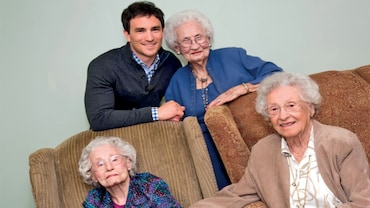- HOME
- /
- True Stories
- /
- My Story
- /
Living With Caste
On the tyranny of exclusion that marks Dalithood
 Illustration by Siddhant Jumde
Illustration by Siddhant Jumde
The idea is to live castelessly—these words from writer Vijeta Kumar’s piece on her Dalit identity, really hit home. My parents have been trying to do the same for years—acquiring possessions, working to assimilate themselves—all with the aim of living castelessly.
We are a Jatav/Chamar family. Chamars were among those who were formerly called ‘untouchables’ and are now called Dalits. My parents grew up in stereotypical settings of ghettoization. As adults, who were products of a caste-ridden childhood, they have spent their lives trying to absorb the shock of their caste identity and keep their children safe from it. In their early years of marriage they moved away from their Dalit neighbourhoods to a new upper-middle-class locality, on the outskirts of Agra. My father ran a small business, but their life really turned around when he became a Member of the Legislative Assembly. My parents now enjoyed a new-found confidence—they had raised their social capital and maybe, even succeeded in leaving their past behind. They viewed their new social status as liberation from their stigmatized social group. But, reality didn’t quite match their aspirations.
As is the norm in any political household, we witnessed a frequent rush of people visiting and mingling with us. These gatherings gave my parents a sense of assimilation they had never experienced. However, as the years went on, patterns revealed themselves—neighbours would visit, but mainly for work. And they would be careful not to touch or drink water. Food was out of the question. Their children could play with us, but never share our food. Our Savarna neigh-bours were happy to appropriate my father’s political capital but loathed extending social parity. Power is a gimmick for us, lower castes, providing temporary respite from our caste position, never transcending it. Thirty-five years in the same colony, but the frown on our neighbours’ heads are constant, their social relationship with us continually dissociative.
School was hard. I remember classmates being intrigued about why I have an unusual surname, my family background. I received a staggering amount of attention on a daily basis—unwarranted checks on my progress, comments on my clothes, my light complexion. I wondered if it was my hair, or how I smelled that brought so much attention my way.
Set against the largely vegetarian palate of my classmates, my tiffin was a Pandora’s box. The eggs I regularly carried raised a number of eyebrows. I recall a teacher remarking on my meat-eating diet, asking my peers to refrain from sharing my lunch, her caste coddled in her choice of food. She insisted my family fed me eggs in order to protect my ‘unusual’ fair skin. After a few years, I decided to not carry lunch. My mother would question me, try to push in a box every now and then, but I was resolute.
As I got older, I began sharing these experiences with my mother. She recounted her own memories, perhaps as a way to help me navigate the loneliness she knew I was facing. My mother is fair-skinned—something, I realized later, a Dalit is not supposed to be. In a society obsessed with light skin tones, her colour often invited praise. But once a classmate of hers found out where she lived—a Dalit colony, supposedly forbidden for upper castes—her friends wouldn’t let it pass. That is when she realized that the colour of her skin had served as a flimsy shield from the violence her caste identity invited.
Through the years, I have realized that colourism in India isn’t restricted to unrealistic beauty standards, but its long, slender roots stem from deep caste prejudice. I saw it in the language upper-caste peers used to ridicule dark-skinned classmates and teachers. They would call them Mehtar (the cleaning caste) or Chamar. Seeing my identity serve as a slur made me conscious of my fair skin and how it served as a tool, to both save and attack me.
 Reservations—my constitutional right—transformed into another discriminatory force, before I could even start to reap its benefits, writes the author. Photo courtesy: Nikhil Sehra
Reservations—my constitutional right—transformed into another discriminatory force, before I could even start to reap its benefits, writes the author. Photo courtesy: Nikhil Sehra
The registration paperwork for board exams requires caste information, which my teacher took the liberty of announcing in class, in a tone of surprise, mixed with disappointment. And just like that, I came to snatch away a Savarna’s future, a mole in their meritorious world. My minuscule academic achievements became suspect, my abilities scrutinized. The comments on my caste increased, as did the assumptions regarding my relaxed future due to reservations. Reservations—my constitutional right—transformed into another discriminatory force, before I could even start to reap its benefits.
As I turned 18 and got ready to leave for college, my mother’s homemade snacks and woollens were carefully wrapped along with my parents’ fears. My father repeatedly reminded me to be careful while befriending people, a warning perhaps stemming from his own experiences of isolation. At university in Delhi, all reserved category students were relegated to one corner of the classroom. Savarna peers, teachers would pick on us, serve us with daily reminders that we were interlopers, in their otherwise meritorious world.
My upper-caste roommate assigned to my hostel room wanted to demarcate parts of the room in which I could function. The easy ownership he felt over me and our shared physical space is still fascinating to me. I would be bullied for trying to use English among a few upper-caste friends, who would make fun of my mistakes, but had a markedly different approach towards upper-caste slips. I was supposed to be perfect because I had been allowed to sit among them.
Today, the surprise that follows whenever I disclose my Dalit identity to friends and acquaintances is testimony that an educated, English-speaking, economically well-off Dalit is both unexpected and, in some cases, indigestible to the Indian palate. I carry a spare change of clothes and toiletries just in case I’m unable to make it back home from a friend’s place and need to spend the night, because of the possibility that he may refuse or hesitate to offer me what I need. This alertness about being singled out is perhaps most telling in the way my father always insisted we wear shoes, not slippers or sandals, while stepping out.
Perhaps the casteless world of my parents’ dreams is hypothetical, but I do not yearn for it. The experiences I have penned here—and several that I didn’t know how to put in words—blend in with the many other truths that define who I am, providing me with an undying longing to live, learn and take pride in it all.






